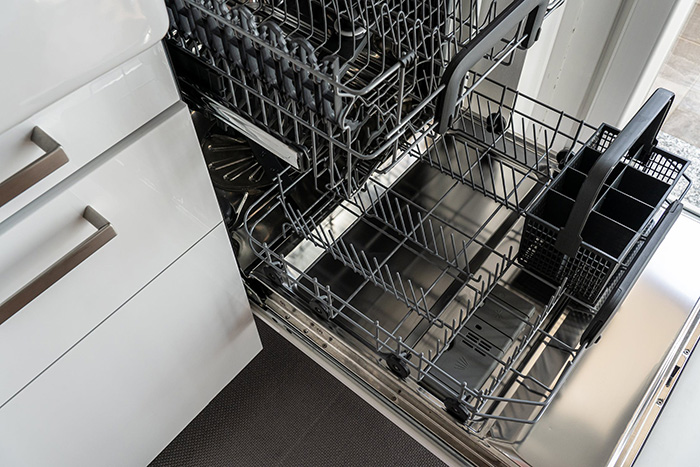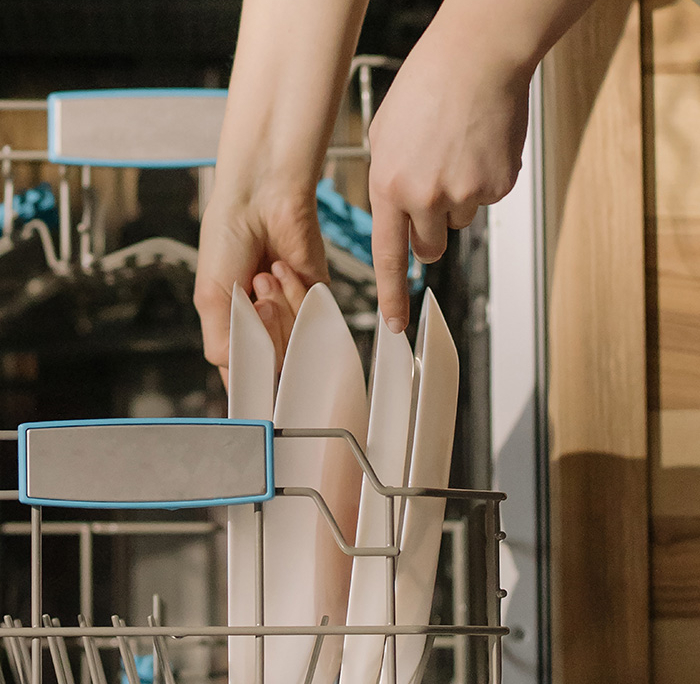Maximizing Dishwasher Efficiency: Dos and Don’ts
 Are you making the most out of your dishwasher? Dishwashers help keep kitchens clean, dinner time easier and lives running smoothly. But other than loading and unloading, most people don’t realize the wealth of efficiency-boosting tricks that help keep your dishwasher in tip-top shape.
Are you making the most out of your dishwasher? Dishwashers help keep kitchens clean, dinner time easier and lives running smoothly. But other than loading and unloading, most people don’t realize the wealth of efficiency-boosting tricks that help keep your dishwasher in tip-top shape.
In this article, we will go into the best practices and pitfalls in dishwasher usage that everyone can understand, not just appliance repair professionals. We aim to help you optimize your dishwasher’s performance, extend its lifespan, and even save on your utility bills.
So whether you’re a first-time homeowner, a seasoned homemaker, or someone looking to streamline their kitchen chores, this guide promises to shed new light on how you use your dishwasher.
Summary
- What Is a Dishwasher and How Does It Work?
- What Factors Affect Dishwasher Efficiency?
- Dos of Dishwasher Efficiency
- Don’ts of Dishwasher Efficiency
1. What Is a Dishwasher and How Does It Work?
Let’s take a quick look under the hood of a dishwasher to first understand how it’s built. Dishwashers are composed of a tub, heating element, water supply line, detergent dispenser, spray arm, and drain hose.
The tub holds the dishes while the heating element supplies hot water for cleaning. The detergent is released from the dispenser and mixed with the hot water. The spray arm then sprays the water and detergent mixture onto the dishes, while the drain hose removes any excess water and debris from the tub after cleaning is complete.
2. What Factors Affect Dishwasher Efficiency?
 The efficiency of a dishwasher can be affected by several factors, including:
The efficiency of a dishwasher can be affected by several factors, including:
- Water temperature: Cold or lukewarm water won’t be as effective in cleaning and sanitizing dishes as hotter water.
- Water pressure: Low water pressure can prevent the dishwasher from efficiently spraying the detergent and hot water mixture onto the dishes.
- Detergent type: Different types of detergents may require different amounts of time and heat to be effective in cleaning dishes.
- Loading pattern: Overloading the dishwasher can prevent it from cleaning dishes effectively while loading it too lightly can cause water and soap to be wasted.
3. Dos of Dishwasher Efficiency
Start with these easy do’s every day to ensure your dishwasher is running efficiently:
- Load Dishes Properly: To ensure your dishwasher cleans your dishes effectively, make sure everything is loaded properly. Place large items like pots and pans on the bottom rack, leaving room around them so water can circulate. Use the top rack for cups, glasses, and smaller items.
- Sort Dishes by Type: Place dishes of similar materials on the same rack to ensure they don’t scratch each other during the cycle. Avoid stacking plates or nesting bowls; instead, make sure they are spaced out so water can access all surfaces.
- Check Water Temperature: Many dishwashers require hot water, preferably 120°F or higher, to function properly and provide a good clean. To check your water temperature, wait until the dishwasher is filled with water and open the door; if it feels hot to the touch, you know you have sufficiently hot water.
- Keep Your Dishwasher Clean: To maintain peak performance, it is important to keep your dishwasher clean. Remove excess food particles from the filter and spinner arms after each cycle. For a deep clean, periodically fill a dishwasher-safe container with two cups of white vinegar and place it on the top rack.
- Pro Tip: Having a dirty dishwasher can also cause dishes to not dry properly, so it’s important to always check to see how dry your dishes are after each cycle. If your dishwasher is not drying dirty dishes after the deep clean, then it could be a sign of something larger.
4. Don’ts of Dishwasher Efficiency
Make sure to avoid these don’ts for dishwasher efficiency:
- Overload the Machine: When loading a dishwasher, it is important to leave enough room for dishes and items to move around during the cycle. If your dishwasher is overloaded, water won’t reach all surfaces and the dishes may not be cleaned properly.
- Forget Pre-Rinsing: If your dishes are particularly dirty, pre-rinse them in the sink to remove excess food particles. Otherwise, they could block the filter or spinner arms and prevent a thorough clean.
- Use Too Much Detergent: Many dishwashers require only one tablespoon of detergent for optimal performance. Using too much detergent can lead to residue on dishes and suds spilling out onto the floor of the machine.
- Ignore Warning Signs: If you notice any strange noises, water pooling under the dishwasher, or dishes continuing to not come out clean, contact an appliance repair service. It may be time for a thorough inspection and possible repair.
By understanding and implementing the dos and don’ts of maximizing your dishwasher, you can keep your dishwasher operating at its peak, conserves resources, and last longer. The last thing any homeowner wants is for their dishwasher to stop working. So by making these easy daily changes you will notice a big difference over time in the efficiency and longevity of your machine.
Comfort Appliance has years of experience providing dishwasher repairs for customers in Covington, Conyers, Snellville, Lawrenceville, McDonough, Atlanta, and the surrounding communities. We can help keep your dishwasher running at its peak for years. We solve issues with your large home appliances and provide refrigerator repairs, washer repairs, dryer repairs and more. Call us today.
By Dennis Godynuk, Owner of Comfort Appliance Repair
Dennis Godynuk is the owner of Comfort Appliance Repair in Covington, GA. Comfort Appliance provides fast and reliable repair services for all major household appliances. Dennis and his team of experienced technicians can tackle any problem, from broken refrigerators to malfunctioning dishwashers, and their prices are very competitive. Customers can rest easy knowing that their appliances are in good hands when they call Comfort Appliance Repair.



